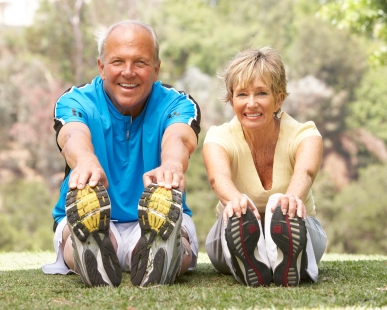
Mental Health Tips: How Exercise Can Help Relieve Depression
When you are anxious or depressed, exercising is the last thing you want to do…but it’s exactly what you might need. While the links between exercise and depression are not quite clear, it is thought that it works by releasing endorphins and endocannabinoids, which are the “feel good” chemicals in your brain.
Physical benefits
Exercise has both physical and emotional benefits. When you are depressed, it can be difficult to make yourself get up and do anything. The increased “down time” can cause you to develop other health issues, including cardiovascular problems, high blood pressure, diabetes (depression often leads to stress eating) and arthritis. Regular exercise can help to ward off or reverse some of these conditions. Exercise is defined as “a planned, structured or repetitive movement designed to improve or maintain physical fitness”. Physical activity is different from exercise, in that it is “any activity that expends energy”. Physical activity such as gardening, riding a bike, walking or swimming can be beneficial to your mental health, and will improve your physical health as well.
Emotional benefits
Feeling depressed or anxious can make people isolate themselves. This isolation can come from not wanting others to see how we’re feeling, not being able to expend the energy that it takes to interact with others, or feeling like others won’t want to be around us when they know how we’re feeling. Exercise and physical activity can help to combat these feelings by:
- Helping us to cope in a healthy way. When we get up and move we are taking charge of our emotions, and using positive strategies to deal with our feelings.
- Giving us social interaction. Isolating ourselves makes us feel worse, as we are stuck inside our own head, stewing over our problems and magnifying the situation until it’s out of control. By getting out and interacting with people, even if it is just waving to the people that we see on our walk, we are forcing ourselves to stop thinking inwardly for a few minutes and focus on something positive.
- Take your mind off of your problems. Spending time “inside our heads”, worrying about our situation, magnifies our problems and makes them “larger than life”. When we choose to exercise and change our focus, our mind becomes clearer and more capable of focusing on the issue at hand with a reasonable level of clarity that brings things into perspective.
- Boost confidence. Depression and anxiety have a way of intruding into all of our thoughts, and negative self-talk becomes a regular part of our day. When we set goals and achieve them, we put the self-talk to rest and give ourselves a confidence boost that reminds us that we have good qualities and self-worth.
You don’t have to jump into a structured exercise program or run out and join a gym, but finding a way to get some movement into your life, even if it’s just starting out by walking around the block, will have an impact on your mental health, and start you down the path to wellness.
How The High Cost Of Insurance Deductibles Affect Patient Care

Exercise and arthritis: How movement can help to ease arthritis symptoms in your hands
Do you have stiff joints in your hands? Is it difficult to do the things that you used to do? You are not alone. Over 52.5 million people in the US have some form of arthritis. While the condition can be painful and make even the simplest tasks more difficult, there are some things that you can do to help ease your symptoms and get back to your life.
Range of motion
The most important thing you can do for your hands is to move them. Exercising them regularly, even if it is painful, will keep you from losing your range of motion. Some easy exercises that can be done anywhere include:
- Helping us to cope in a healthy way. When we get up and move we are taking charge of our emotions, and using positive strategies to deal with our feelings.
- Make a fist. Just the act of opening and closing your hand several times a day keeps joints from seizing up and makes them more flexible.
- Finger bends. Hold your hand out in front of you, and slowly bend each finger. Start with the first knuckle, then straighten and bend all the way to your palm. If you can’t bend that far, go as far as you can without causing extreme pain, trying to increase your bend a little each time you do it.
- Make an “O”. Make an “o” shape with your first finger touching your thumb and your other fingers curled around it. Do this several times a day to increase your range of motion.
- Finger lift. Put your hand flat on a table or other flat surface, then slowly life each finger as high as possible. Hold it for a few seconds then release.
- Wrist stretch. Hold your hand out in front of you and using your other hand, gently push down at the wrist until your fingers are pointing toward the floor.
Pain management
Sometimes it can be difficult to make yourself do the exercises, especially if your hands are already hurting. Try taking a low dose aspirin or ibuprofen to help ease the pain, and then do the exercises after it’s had a chance to kick in. Soaking your hands in warm water will also help to ease the stiffness and loosen up your joints, making it easier to exercise. You can even do the exercises while your hands are submerged in the water. Warm paraffin wax is another way to ease the pain in your hands—submerge your hands in it for a few minutes to allow the warmth to loosen your joints.


